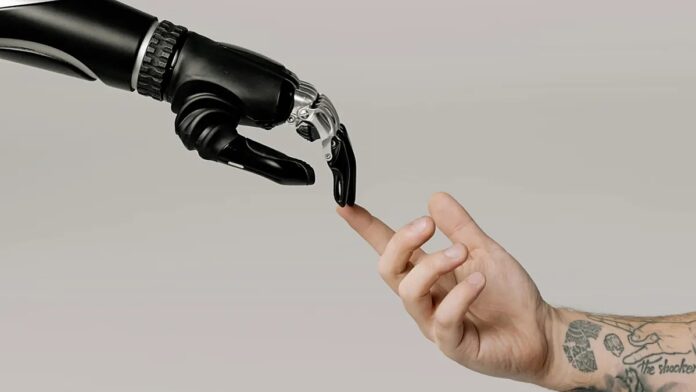Artificial intelligence (AI) is rapidly weaving itself into the fabric of our lives, impacting everything from energy grids to grocery stores. This isn’t science fiction; it’s happening now. Three Spanish tech leaders recently gathered at the French Innovation Night, hosted by Business France and the French Embassy, to discuss how AI is shaping our present and future.
Elena González-Blanco García, Microsoft’s Head of AI for EMEA Digital Natives, highlighted the dizzying pace of innovation in this field. “Even those developing these models struggle to keep up,” she remarked. The key, she believes, is helping companies navigate this rapid adoption, bringing AI “down from the lab and into real-world applications.”
McKinsey research predicts that by 2024, a staggering 78% of businesses will be integrating AI in some capacity – a figure González-Blanco thinks underestimates the actual penetration. “We are already at a point of mainstream adoption,” she stated. “Anyone lagging behind is falling behind fast.”
The Data Dilemma: Security and Trust
One persistent challenge facing widespread AI adoption is public concern over data privacy. A 2025 Ipsos study reveals that 40% of Spaniards don’t trust companies to adequately protect their information. Javier Mallo, Carrefour Spain’s Chief Information Officer, presented a dual perspective on this issue: “As a citizen, I acknowledge the risk; but without data sharing, we’re left behind. As a professional, I assure you that we invest heavily in cybersecurity, though no system can offer 100% protection.”
González-Blanco agreed, stating that fear is often misplaced. “We’ve been sharing information on social media for decades,” she pointed out. “The crucial aspect isn’t fearing AI but understanding it and using it responsibly.” Rafael San Juan of Iberdrola added that while cybersecurity will always be a race against evolving threats, regulations and ethical frameworks are catching up to strike a balance.
A Global Race: Can Europe Keep Pace?
All three experts agreed on one undeniable fact: Spain and the European Union are falling behind in AI investment, jeopardizing their competitiveness against tech giants like the US and China. “It’s not just about money,” González-Blanco stressed; “it’s about believing in this technology and overcoming our fear of failure.”
The sentiment was echoed by San Juan, who emphasized that this is a pan-European trend, while Mallo highlighted a lack of ambition to rival the dominance of nations like the US and China. McKinsey research from 2025 indicates just 1% of surveyed companies have fully integrated AI into their workflows, revealing untapped potential for increased productivity and streamlined processes.
González-Blanco pointed to Mistral, a French unicorn specializing in generative AI models, as proof that Europe can be a major player if it prioritizes talent development and fosters innovation.
Redefining Work: Collaboration, Not Competition
Despite anxieties surrounding job displacement by AI, the experts offered a clear message: AI is not here to replace skilled workers, but to empower them. “We’ve been hearing about machines replacing humans for 50 years, and it hasn’t happened,” González-Blanco reminded the audience, referencing an interview with Marvin Minsky, founder of MIT’s first AI lab in the 1970s, who predicted widespread job losses within a decade. “Technology alters how we work, but it doesn’t diminish human value.”
San Juan emphasized that knowledge and experience remain irreplaceable assets, while Mallo argued that the future lies in collaboration between humans and machines: “Companies that blend artificial and emotional intelligence will lead the way.”
González-Blanco clarified that applied AI, even for smaller businesses, can be a powerful tool for specialization. “It’s not about building the technology itself but utilizing it effectively,” she explained. Local expertise and niche market knowledge can provide a significant advantage in this evolving landscape. Mallo echoed this sentiment: “Today, anyone with a compelling idea and the ability to execute it has unprecedented access to the market.”
The Unquantifiable Element: What AI Can’t Do
The panel concluded on an insightful note: what will AI never be able to do? All three offered a unified answer – truly feel or empathize. “AI can build the Taj Mahal, but it won’t comprehend the love behind its construction,” San Juan summarized.
Emotions, creativity, and intuition remain uniquely human qualities, according to the speakers, distinguishing us in an increasingly AI-driven world.




























